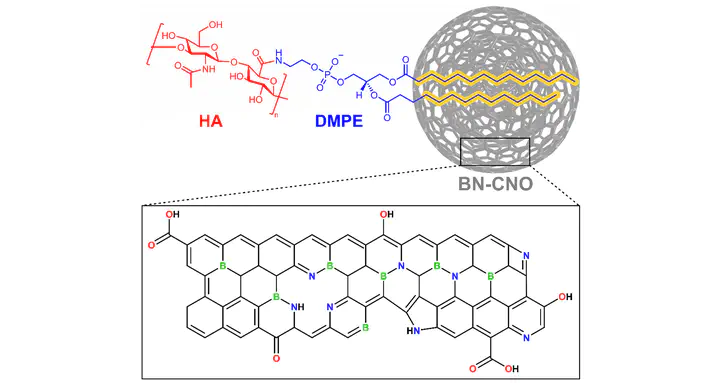Supramolecular Functionalisation of B/N Co-Doped Carbon Nano-Onions for Novel Nanocarrier Systems

Abstract
Boron/nitrogen co-doped carbon nano-onions (BN-CNOs) are spherical nanoparticles that consist of multiple inter-nestled fullerene layers, giving them an onion-like internal structure. They have potential as nanocarriers due to their small size, aqueous dispersibility, and biocompatibility. The non-covalent attachment of a biocompatible polymer to BN-CNOs is a simple and effective method of creating a scaffold for a novel nanocarrier system as it allows for increased aqueous dispersibility whilst preventing the immune system from recognising the particle as a foreign object. The non-covalent approach also preserves the electronic and structural properties of the BN-CNOs. In this study, we attached a hyaluronic acid-phospholipid (HA-DMPE) conjugate polymer to the BN-CNO’s surface to improve its hydrophilicity and provide targetability toward HA-receptor overexpressing cancer cells. To this end, various ratios of HA-DMPE to BN-CNOs were investigated. The resulting supramolecular systems were characterised via UV-Vis absorption and FTIR spectroscopy, dynamic light scattering, and zeta potential techniques. It was found that the HA-DMPE conjugate polymer was permanently wrapped around the BN-CNO nanoparticle surface. Moreover, the resulting BN-CNO/HA-DMPE supramolecular systems displayed enhanced aqueous solubility compared to unfunctionalised BN-CNOs, with excellent long-term stability observed in aqueous dispersions.